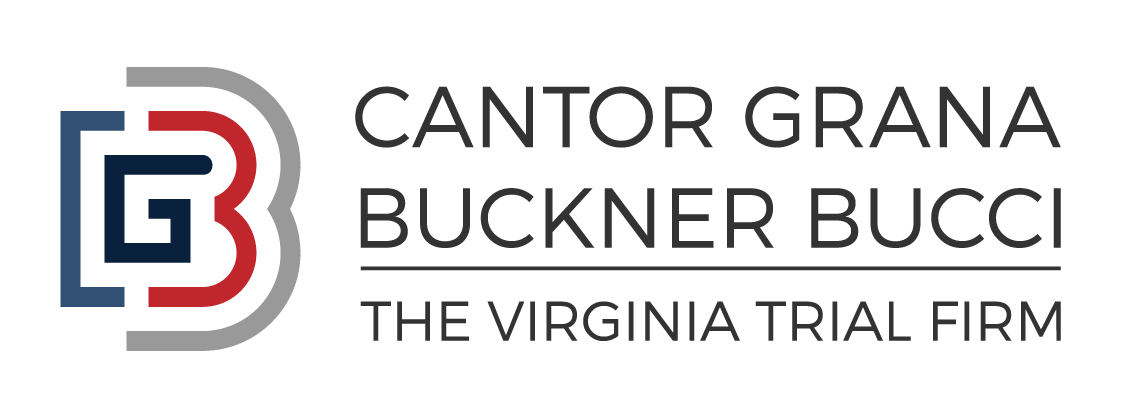LET OUR VIRGINIA TRAUMATIC BRAIN INJURY ATTORNEYS HELP YOU MOVE FORWARD
Contact our firm now online or by phone at (804) 644-1400 to schedule a free case evaluation with our Richmond Brain Injury attorneys.
Richmond Brain Injury Attorney
The brain is our most complex and delicate organ. The damage that occurs when it is injured is often hidden; most people don’t really understand how fragile the brain is or how an injury can cause such damage.
Our lawyers do. They have a thorough understanding of traumatic brain injury, its symptoms, and its impacts, and they are very successful in defending our traumatic brain injury clients.
What Is A Traumatic Brain Injury?
A traumatic brain injury, or TBI, happens when an external blow, physical assault, or violent jolt damages the brain. The injury can be confined to one area of the brain (focal) or affect multiple parts (diffuse).

Source CDC https://www.cdc.gov/traumaticbraininjury/index.html
As many as 3.8 million concussions occur in the US per year during competitive sports and recreational activities, but about 50% go unreported.
Brain injuries are classified as mild, moderate and severe. Sometimes mild brain juries are referred to as concussion. Many people think there must be blunt force trauma to the head to receive a brain injury, but our lawyers know that isn’t true.
Although you, your family, and your friends may know something is wrong, it can be enormously challenging to prove to the insurance company or a jury that you experienced a TBI because of someone else’s actions.
The brain is an amazing organ, and the various causes and presentations of brain injuries makes them even more complicated for juries to understand and reward.
That’s why you need attorneys who understand the complexities of brain injury.
If you suffered traumatic brain injuries caused by the negligence of another party, contact a Richmond brain injury lawyer with Cantor, Grana, Buckner, & Bucci. We can gather the evidence needed to help ensure you obtain fair compensation.
What Causes A Traumatic Brain Injury?
TBI’s can occur in several ways, including motor vehicle accidents, sports injuries, falls, assaults, and unintentional blunt trauma, such as accidentally being hit in the head with an object, like a baseball bat, hammer, or golf club.
When the brain is jolted or something hits it, it causes blunt force trauma. The head whips quickly from front to back or side to side or comes to a sudden stop; when this happens, the delicate brain is jolted around inside the skull, causing irreparable damage to its soft tissues.
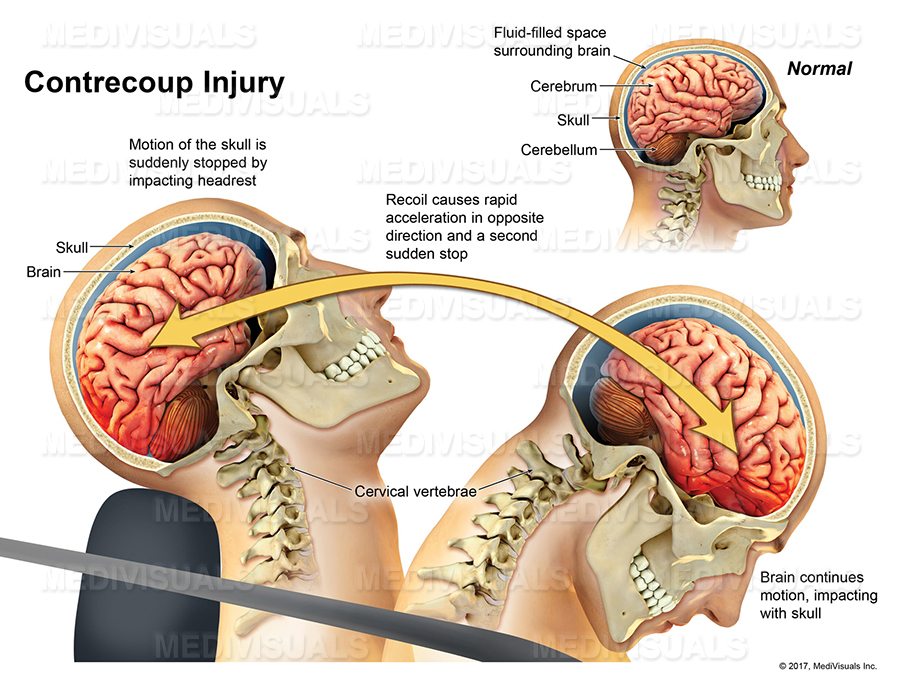
Many TBI’s can cause bleeding inside the skull, which causes pressure to build near the brain and make the brain injury worse.
Slip, trip and fall accidents, where someone falls and hits their head on a hard surface, are the most common cause of traumatic brain injuries, particularly for the very young and very old.
Some of the other common causes of brain injury include:
- Car accidents
- Motorcycle crashes
- Truck collisions
- Workplace accidents
- Acts of violence
Our Richmond brain injury lawyers are experienced in representing victims of traumatic brain injuries and their families. We are dedicated to protecting your rights and helping you through this difficult time. If you or a loved one has suffered a traumatic brain injury, please contact us today.
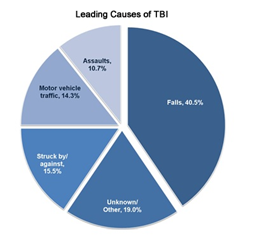
How Are Brain Injuries Classified?
They can be classified in ways that describe the type, cause and/or severity of injury.
Open vs Closed Head Injury: Most TBI’s are closed injuries, but some occur because of a penetrating injury in which the skull is punctured or fractured. These kinds of injuries can sometimes cause bone fragments to push into the soft brain tissue.
Traumatic vs Non-Traumatic: Traumatic brain injuries occur from an external cause. Non-traumatic brain injuries occur from an internal cause, and include things like strokes, aneurysms, infection and drug overdoses.
Mild/Moderate/Severe: Traumatic brain injuries are classified as mild, moderate, and severe according to the Glasgow Coma Scale (GCS). The scale provides a quick assessment of the extent and duration of change in brain function. Patients are evaluated for their level of consciousness, ability to follow commands and speak.
Many patients with “mild” TBI’s are quickly sent home, however the seriousness of the injury has yet to be determined. Symptoms of a mild traumatic brain injury may include headaches, sensitivity to light and sound, dizziness and trouble thinking clearly. It is not unusual for mild TBI’s to take a year or more to resolve.
Determining the classification and type of brain injury you or your loved one has experienced will help when your brain injury lawyer pursues a personal injury case on your behalf.
- Mild Traumatic Brain Injuries: GCS of 13 to 15. Commonly referred to as a concussion, a mild traumatic brain injury may involve a loss of consciousness for up to 30 minutes. Some mild TBI’s do not involve a loss of consciousness, but all will have some alteration of consciousness. They may have a period of amnesia following the accident (post-traumatic amnesia); they may have headaches or vision changes; they may have nausea; they may have “Brain fog.” Many patients with mild brain injury will have a negative CT scan and be told they’re fine, and most will not receive any type of therapy.
- Moderate Traumatic Brain Injuries: GCS of 9 to 12. A moderate traumatic brain injury causes a loss of consciousness lasting between 30 minutes and 24 hours. After regaining consciousness, someone with a moderate brain injury may be very confused and agitated; they will not remember events before or after the accident. Most patients will stay in the hospital for several days and receive some therapy. Some may be left with long term physical and/or cognitive disabilities.
- Severe Traumatic Brain Injuries: GCS of 3 to 8. The most severe traumatic brain injuries result in greater than 24 hours of loss of consciousness. Patients may be slow to wake up and follow commands; they may struggle to walk, talk and eat; they will have trouble with their cognitive and behavioral abilities. They’ll need extensive therapy, and if they cannot live independently after their injury, careful planning for their future.
No matter the classification of the brain injury, it is essential to seek medical attention and understand what type of brain injury you may be experiencing so that brain injury attorneys can help you recover compensation for any damages.
The Most Common Types Of Brain Injuries
Types of traumatic brain injuries include:
Concussion: Concussions occur due to a jolt to the body or head. Someone with a concussion may result in a loss of consciousness, dizziness, sleepiness, blurred vision, headache, and nausea; these symptoms may start immediately or become apparent over several hours. One brain injury, including a concussion can make you more susceptible to future concussions, and repeated concussions may cause permanent brain damage.
Diffuse Axonal Injury: A diffuse axonal injury, or DAI, is one of the most common, yet serious types of brain injuries. When someone falls or is in a car accident, the brain moves against the inside of the skull, causing damage to the tissues, blood vessels, and long connecting nerve fibers; this leads to bleeding, bruising, or swelling inside the brain. DAI can cause injury to many different parts of the brain; the changes are often microscopic and may not be evident on computed tomography (CT scan).
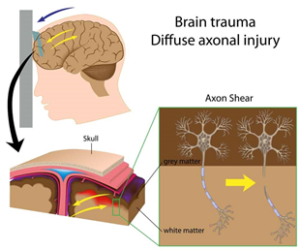
Hematoma: When bleeding occurs in the brain, a hematoma, or blood clot, can form. The buildup of blood and the resulting pressure can lead to severe brain damage. Immediate symptoms include headaches, seizures, and a loss of consciousness.
Edema: Trauma causes inflammation, which causes swelling or edema in the brain. When it is significant, the skull cannot change its shape to make room for the swelling and allow fluids to circulate, causing pressure to build. Brain swelling is very dangerous because the skull leaves little room for the brain to expand, leading to at best surgery to remove part of the skull to allow the brain to swell without causing, at worst, permanent damage or death. Headaches, neck pain, seizures, dizziness, and memory loss are all symptoms of edema that may result in severe brain damage.
Hemorrhage: If uncontrolled bleeding, or a hemorrhage, occurs in the brain due to external or internal causes, it can lead to irreversible brain damage. Nausea, vomiting, and severe headaches indicate a brain hemorrhage, and you should seek medical treatment immediately.
Skull Fracture: When an external object penetrates the skull, it can cause the skull to crack or fracture. Skull fractures are a dangerous medical condition and the person may be at higher risk for a brain infection.
While every head or brain injury needs immediate medical attention, severe brain injuries require extensive, ongoing treatment that can last a lifetime and cost millions.
With the help of an experienced traumatic brain injury lawyer, you can secure a brighter future for yourself and your family.
What Are The Symptoms Of A Traumatic Brain Injury?
While our skulls form a thick, protective layer for our brains, they’re still sensitive and complex organs, which means brain injuries can affect anyone.
Like the accidents that cause them, no two brain injuries are the same. Each brain injury comes with a unique range of side effects. Some symptoms are immediate, and others develop over time.
This range of side effects means some quickly recover; others deal with a variety of adverse effects for weeks, months, or even years; and others develop lifelong challenges related to their injury.
The side effects of a head injury can be immediate; some start within the first 24 hours. If there is slow internal bleeding or a hemorrhage, symptoms may not develop for days. You might not realize how severely someone’s brain injury has impacted them until they try to manage their lives, their relationships, their health, or their return to school or work.
Some symptoms are inconvenient, while others are debilitating, restricting your or your loved one from living everyday life. They can be medical, physical, cognitive, or a combination of all three; they can impact someone’s speech, their personality, and their mental health. It is essential to understand these symptoms and seek medical attention if any arise.

Immediate side effects of a mild to moderate traumatic brain injury include:
- Fatigue
- Headache
- Visual impairments
- Memory loss
- Poor concentration or attention
- Sleep problems
- Dizziness or balance problems
- Irritability and emotional changes
- Depression
- Nausea or vomiting
- Loss of smell
- Sensitivity to light or sound
- Confusion
- Difficulty thinking
Immediate side effects of a severe traumatic brain injury include:
- Impaired Consciousness
- Medical complications such as seizures, brain swelling, blood clots, and infections.
- Physical changes such as paralysis, balance and coordination difficulties
- Cognitive and behavioral changes such as memory and attention problems, difficulty following commands, agitation and impulsiveness.
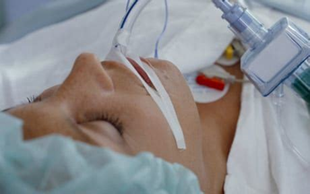
Long-Term Complications Of Traumatic Brain Injury
It is important to understand that even mild TBI’s can have long-term consequences, and finding the right doctor is critical to recovery. Getting an experienced brain injury lawyer to fight for you will help ensure you or your loved one have the resources to get the right treatment by the right professionals.
For those with more severe brain injuries, the long term consequences can be significant. These injuries have much higher medical costs and more complicated care requirements, and significantly impacts how a brain injury victim lives. Such injuries may even cause permanent disability.
Impaired Consciousness: Among the most serious injuries, it can also be among the most costly if the victim requires total care for the rest of their life. Sometimes consciousness is only impaired briefly; sometimes it’s longer. Disorders of consciousness prevent the victim from operating in a normal state of awareness and include:
- Coma: A person will slip into complete unconsciousness after widespread brain damage; this will last for a few weeks. As soon as patients open their eyes, they are said to “awaken” from the coma. This does not, however, mean that a person is conscious. They will transition to a vegetative or minimally conscious state.
- Vegetative State: In a vegetative state, the entire brain has been injured, and the victim is not processing information from the environment, though they may respond to reflexes and make sounds. A vegetative state may be permanent, although some people regain a level of consciousness.
- Minimally Conscious: Some patients regain awareness of themselves and the environment when recovering from a coma or a vegetative state.
- Brain Death: Some of the most traumatic brain injuries result in brain death. Brain death is when there is no activity in the brain or brainstem. It is permanent, and without breathing devices and feeding tubes, the patient will not survive. If this effect is due to someone else’s negligence, a brain injury attorney will help you prove wrongful death.

Medical Complications: When the brain is injured, there can be immediate and long term medical issues that affect recovery. Some of these issues are related to the trauma itself; some are a result of the brain injury; some may seem unconnected to the brain injury. Patients may experience post-traumatic, migraine-like headaches that last for days after the incident to month. They may also have vertigo, which makes patients feel suddenly off-balance or dizzy; this vestibular problem is a common and disorienting symptom after TBI.
One of the most concerning medical complications after brain injury is seizures. A seizure is caused by a burst of spontaneous electrical activity between brain cells, which causes sudden abnormalities in muscles, behaviors, and awareness. Some traumatic brain injury patients only have seizures during their early recovery; others have seizures, or post-traumatic epilepsy, for years to follow.
Physical Complications: There can be a wide range of physical challenges after severe brain injury, such as paralysis or weakness and poor balance and/or coordination. One of the most misunderstood is fatigue. Many people report excessive fatigue after brain injury. This is due to how much energy is focused on healing and how much harder the brain has to work to compensate for impaired functions. However, some feelings of fatigue come from secondary effects of TBI, such as depression, pain and poor sleep.
Sensory Complications: Damage to the cranial nerves, which sit at the base of the brain is common after traumatic brain injury and can cause paralysis of parts of the face, vision problems, and ringing in the ears or hearing loss.
One of the most common cranial nerve injuries involves a loss or reduction in the ability to smell or taste. Such dysfunction can be devastating and dangerous to the patient; in many cases, traumatic brain injuries cause someone not to be able to smell gas or smoke. Typically, the loss will be permanent if the patient does not regain their ability to smell or taste within six months to one year following a serious injury.
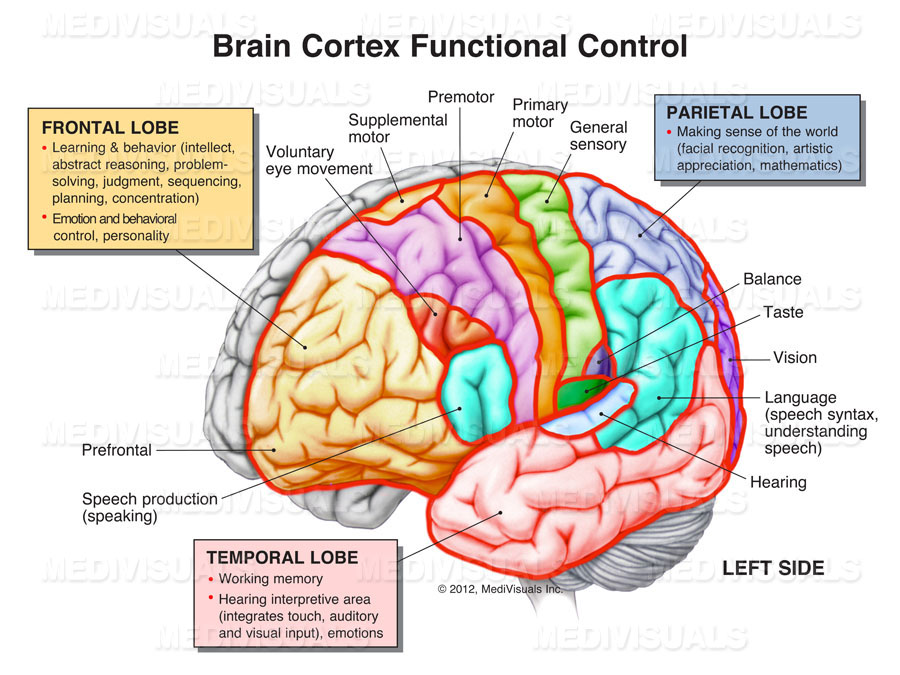
Cognitive Complications: Many of our higher level thinking skills happen in our frontal lobe; these include things like paying attention and organizing information. The frontal lobe is frequently damaged in a traumatic brain injury, and those patients will have problems with attention and concentration; memory; judgment and problem-solving; and the ability to understand abstract concepts.
Communication and Language Complications: Aphasia, which is difficulty speaking and understanding speech and choosing the right words to say, is one of the most vexing challenges for patients after TBI. Many times, the issues make reading and writing very hard, and for some, it limits their ability to work with numbers.

Personality or Psychiatric Complications: These issues can be among the most difficult to recognize and accept by both brain injury patients and their loved ones. These can include difficulties in making and keeping friends and managing social situations; to a mental health condition such as anxiety or depression; to problems getting motivated and managing their emotions. Behavioral issues, such as disinhibition, temper flare-ups, aggression, cursing, lowered frustration tolerance, and inappropriate sexual behavior can lead to situations in which patients require extensive treatment and patients may require supervision for the rest of their lives.
The physical, cognitive and emotional challenges of many patients with traumatic brain injury can lead to difficulty managing basic activities of daily living (ADLs), such as dressing, bathing and eating, as well as more advanced ADL’s like shopping, cooking and managing money. Returning to school or work and even driving a car or operating machinery may no longer be possible or safe for you or your loved one.
If any of these complications, or a combination of them are causing problems with your ability to live independently and earn a living, you need an experienced brain injury attorney to help you win your case and plan for your future.
Our lawyers have a deep knowledge of brain injury and extensive experience in traumatic brain injury; they understand the magnitude of these injuries, which is why clients turn to them for help seeking the compensation they deserve to rebuild their lives.
Rehabilitation From A Traumatic Brain Injury
If you have had a TBI, rehabilitation (or rehab) will be an important part of your recovery. The goal of brain injury rehabilitation is to improve the overall quality of life for persons living with a TBI and lower the chance for a TBI-related disability. Recovery from brain injury will vary depending on a variety of factors, including the severity and type of injury; this can make the side effects of a brain injury unpredictable. All brain injuries can be expensive, and you may face challenges like high medical costs and lost wages. Rehabilitation after the injury can be a long, expensive process, which is why our traumatic brain injury lawyers are dedicated to helping victims move forward.
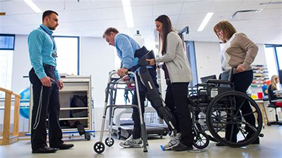
Rehab can take many forms depending on your needs, and it occurs in many places, like hospitals, outpatient clinics and nursing homes. It might include physical, occupational, and speech therapy and psychological services.
It can help improve your ability to function at home and in your community, help treat the mental and physical problems caused by TBI, provide support, and help you and your loved ones adapt to the changes caused by the brain injury. Rehab can also help prevent complications of TBI such as pain, breathing problems and muscle weakness and muscle spasms.
When handling a traumatic brain injury case in which a client has suffered various side effects, traumatic brain injury attorneys will develop evidence to demonstrate the impacts of the injury and the devastation it causes for the jury. They will show the connection between the traumatic brain injury and the side effects it caused, as well as the negative impact those effects have had on your life.
HOW MUCH DOES A TRAUMATIC BRAIN INJURY COST?
Various factors influence recovery after a TBI. Depending on the severity of the traumatic brain injury and the abilities it has affected, the appropriate treatment will be expensive; not all of it will be covered by insurance.
Occupational, physical and speech therapy goals are designed to improve much of the function someone has lost, including:
- Gross motor skills: walking, balancing, throwing a ball and exercising
- Fine motor skills: picking up objects, holding utensils, writing and crafting
- Speech and communication skills: speaking, reading and writing
- Occupational skills: relearning work tasks, learning new skills to get a job and preventing more lost wages
- Counseling: coping with the emotional and psychological effects of the accident and personal injury
These therapies may be needed for months or even years to make up for the effects caused by the injury. Without insurance coverage these therapies can be very expensive. If the accident that injured you was not your fault, you shouldn’t have to pay for the consequences.
After such an injury, a traumatic brain injury lawyer with Cantor, Grana, Buckner, & Bucci will help you obtain fair compensation for your medical expenses and emotional suffering.
HOW DO YOU PROVE BRAIN DAMAGE?
Traumatic brain injury victims may bring personal injury cases against any parties that contributed to the injury through negligent actions.
The last thing you and your family should need to worry about after suffering this traumatic injury is proving this negligence so that you get fair compensation.
Seeking legal advice and starting your case as soon as possible is essential. A brain injury attorney with Cantor, Grana, Buckner, & Bucci will provide legal assistance by handling every step of the case, allowing you to stay focused on your physical condition and medical treatment plan, lessening your stress.
To prove liability for your accident and injuries, your attorney must present enough evidence to prove that another party or parties are liable under the law. At Cantor, Grana, Buckner, & Bucci, we have a great deal of experience doing just that.

After the accident, memories are fresh, parties likely have necessary records, and video footage can be relatively simple to obtain. However, the longer you wait to have a brain injury lawyer start putting together your claim, the greater the risk that crucial evidence will no longer be as strong as it once was.
People can repair vehicles and clean up accident scenes. Witnesses’ memories can fade and become unclear, or witnesses can become unreachable or unwilling to help after a while. Companies might get rid of essential records you need to show liability, or property owners might record over video footage of the accident.
Our legal team will start working on your case as soon as possible to gather witness testimony and physical evidence as soon as possible. Our experienced team will help you obtain:
- Photographs of the scene where the injury occurred
- Police reports
- Video evidence if the accident was filmed
- Diagnosis from an emergency room doctor or neurologist
- Medical documentation of the injuries and damage
- Cognitive evaluation from a neuropsychologist
If you have already waited to call an attorney, it is NOT too late. Discuss your situation with a Cantor, Grana, Buckner, & Bucci brain injury lawyer to learn your options.
What Kinds Of Damages Can I Pursue After A Traumatic Brain Injury In Richmond?
The main component to remember when you seek financial compensation is the severity of the brain injury and its impact on your daily life.
Most personal injury cases that involve a mild traumatic brain injury with a short period of unconsciousness followed by lingering headaches typically result in less compensation than a more severe injury with lifelong repercussions. But, because every accident and injury is unique, a lawyer cannot precisely predict the damages one may expect to receive. The specific facts and circumstances of the case will influence the money that an injured party may recover.
These are the main factors that will be considered when determining the value of your case:
- Medical treatment costs from the initial accident. These might include ambulance services, hospital stays, surgery, X-rays, medication, physical therapy, assistive devices for rehabilitation, and therapy. In cases that cause chronic conditions or long-term disabilities, victims may also claim damages for future medical expenses and care.
- Pain and suffering beyond the original injury if you experience a loss of quality of life. The court may award damages for this after considering the nature and severity of the injuries, the victim’s age and quality of life, and the non-economic losses incurred from the injury.
- Loss of income from time away from work or the inability to return to work in the same capacity because of an injury. A victim who cannot return to work and must reduce hours or change professions because of an injury may also claim compensation for losing future wages or loss of future earning capacity.
- Mental trauma. In some cases, traumatic brain injuries cause post-traumatic stress disorder (PTSD) or other mental disorders that require therapy and other treatment. Victims can claim losses for treatment of mental injuries and physical injuries.
- Permanent disability. Some catastrophic brain injuries result in impairments, disabilities, or disfigurement that last a lifetime. Victims with long-term effects of their injuries that impact their lives can seek damages for this permanency.
The reality is that brain injuries impact all areas of life. The damages victims deserve vary, and brain injury attorneys determine these on a case-by-case basis.
Seeking Full Compensation from Brain Injury Damages
Any accidents causing brain injuries are almost always unexpected and can have devastating consequences for victims. The impacts can be even more overwhelming when an injury is caused by another’s careless, reckless, or aggressive behavior.
Brain injury victims deserve to be justly compensated so they can start a new chapter and regain the confidence to rebuild their lives. The amount of money you can recover may differ from what you should fully recover, depending on the responsible party’s financial resources or insurance coverage.
To discuss how to estimate the value of your injury claim at no cost to you, seek a free consultation with an experienced Richmond attorney with Cantor, Grana, Buckner, & Bucci.
We know that insurance companies routinely refuse personal injury claims. If this has happened to you, we’ll be more than ready to take on your insurer in a court of law.
Following an accident, a brain injury can be hard to diagnose. Symptoms may stay hidden for an extended period, particularly those suffering from a brain injury in the “mild” category. Because brain injuries can affect anyone at any time, the ability to obtain adequate compensation for the damage is in doubt.
If you suffered traumatic brain injuries caused by the negligence of another party, contact an experienced Richmond brain injury lawyer with Cantor, Grana, Buckner, & Bucci. We can gather the evidence needed to help ensure you obtain fair compensation.
Contact us as soon as you can for a free evaluation of your case.
Brain Injury FAQ’s
Is a concussion considered a traumatic brain injury?
Yes; a concussion is a traumatic brain injury
What treatment is recommended for a brain injury?
Treatment depends on many factors, such as the cause and severity of the injury to name a few. A conversation with an experienced professional can help start a recovery journey. Contact the Brain Injury Association of America’s
NATIONAL BRAIN INJURY INFORMATION CENTER
at 1-800-444-6443.
To find the Brain Injury Association in your state, click here.
Should I settle my case?
That is a conversation to have with an experienced attorney; contact the law offices of Catnor Grana Buckner and Bucci today for a free consultation.
Brain Injury FAQ’s
Is a concussion considered a traumatic brain injury?
What treatment is recommended for a brain injury?
Should I settle
my case?
OUR BRAIN INJURY SERVICES TEAM
 For over 40 years, our attorneys have successfully handled hundreds of complicated brain injury cases. Our attorneys have developed the techniques and strategies best designed to convey to juries the significant impact brain injury has on our clients and the struggles our clients still face. Our Brain Injury Team is uniquely qualified to assist you with your brain injury case as a result of our vast experience and proven track record. Anne McDonnell is the newest member of the Brain Injury Team. As the Director of Brain Injury Services, she supports our clients through the litigation and trial experience. As an Occupational Therapist who has specialized in brain injury for her entire career, she stays up-to-date on the latest research and treatment protocols and has an intimate understanding of the recovery journey and the challenges faced by those with brain injury. She is particularly equipped to address the client’s level of function, provide client and family education, and offer emotional support. And as the former Executive Director of the Brain Injury Association of Virginia for over 20 years, Anne is connected to a network of the best brain injury experts in the country.
For over 40 years, our attorneys have successfully handled hundreds of complicated brain injury cases. Our attorneys have developed the techniques and strategies best designed to convey to juries the significant impact brain injury has on our clients and the struggles our clients still face. Our Brain Injury Team is uniquely qualified to assist you with your brain injury case as a result of our vast experience and proven track record. Anne McDonnell is the newest member of the Brain Injury Team. As the Director of Brain Injury Services, she supports our clients through the litigation and trial experience. As an Occupational Therapist who has specialized in brain injury for her entire career, she stays up-to-date on the latest research and treatment protocols and has an intimate understanding of the recovery journey and the challenges faced by those with brain injury. She is particularly equipped to address the client’s level of function, provide client and family education, and offer emotional support. And as the former Executive Director of the Brain Injury Association of Virginia for over 20 years, Anne is connected to a network of the best brain injury experts in the country.
